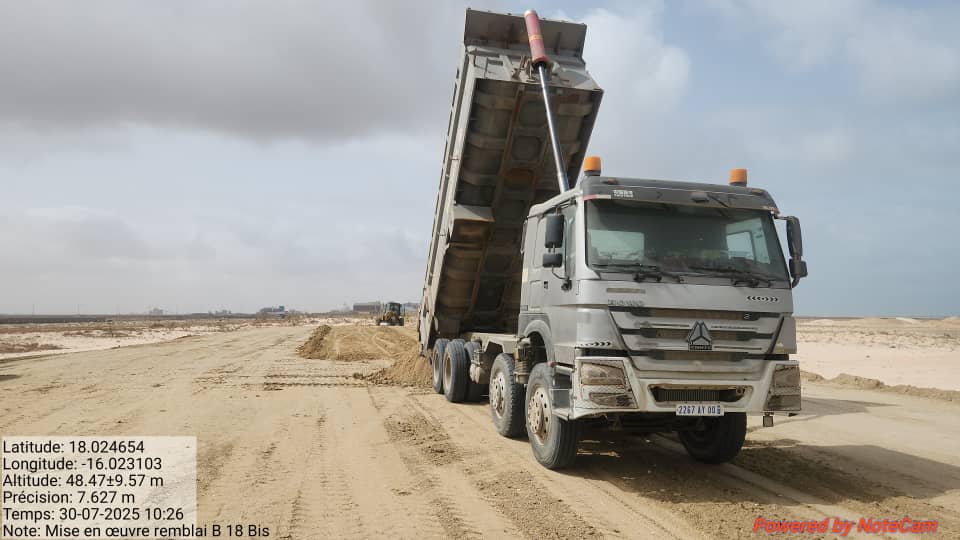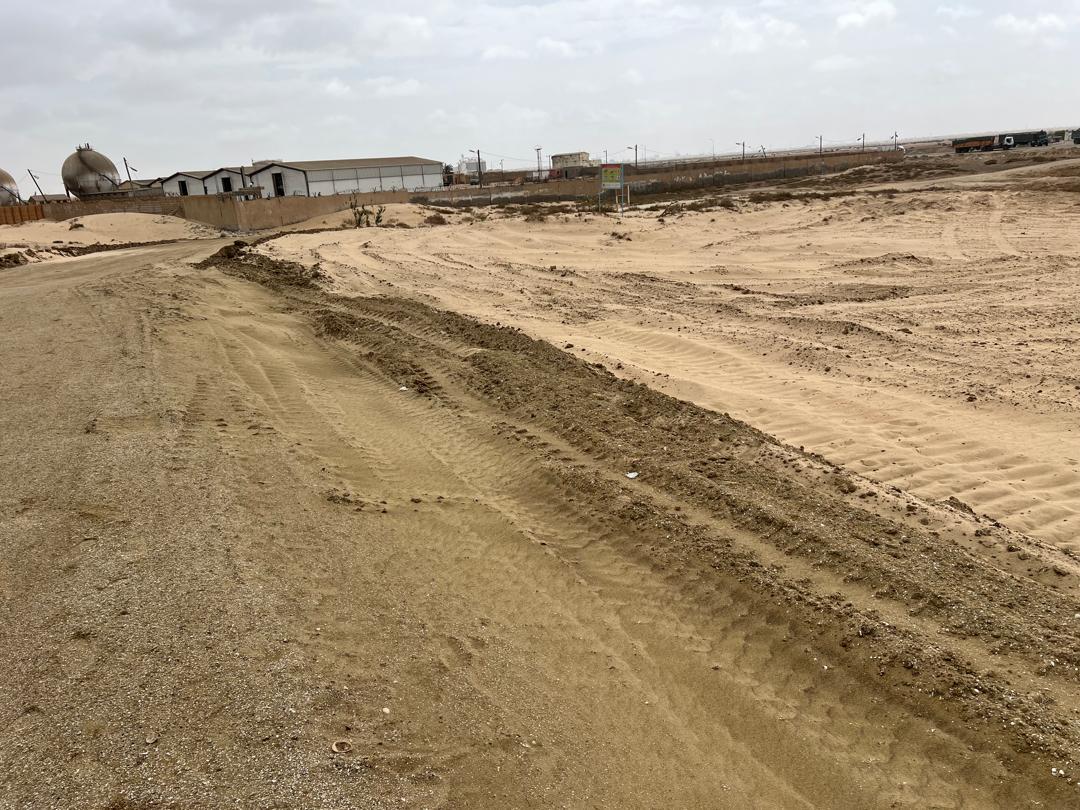News |
The WACA Project closes six new coastal breaches to protect Nouakchott from rising sea levels
Following the successful closure of three major breaches, the WACA project in Mauritania has launched work to seal six additional breaches along the coastal dune system that shields Nouakchott. The goal: to strengthen the capital’s resilience to increasing risks of flooding and marine intrusion.
Located along a 15-kilometer stretch of coastline, the targeted breaches (B12, B13bis, B14, B17, B18, and B18bis) represent critical weak points. Closing them will help protect both the industrial zone north of the port and the densely populated neighborhoods of El Mina and Riadh, which are frequently affected by high tides and storm surges.
Nouakchott is one of the most vulnerable capitals in West Africa to the impacts of climate change. Situated just 0 to 4 meters above sea level, the city sits on a fragile coastal barrier that has been weakened over time by unregulated sand extraction and urban pressure. This has significantly increased the risk of flooding, threatening lives, infrastructure, and economic activities.
The Mauritanian Coastal Resilience Project takes an integrated approach: addressing the most urgent breaches, ensuring rigorous technical monitoring, and raising awareness among local communities. To sustain these efforts, community engagement is essential—especially in ending marine sand mining, which undermines the city’s natural defenses.
Through these initiatives, the WACA program is supporting Mauritania’s fight against coastal erosion and marine flooding, while placing communities at the heart of resilience.

